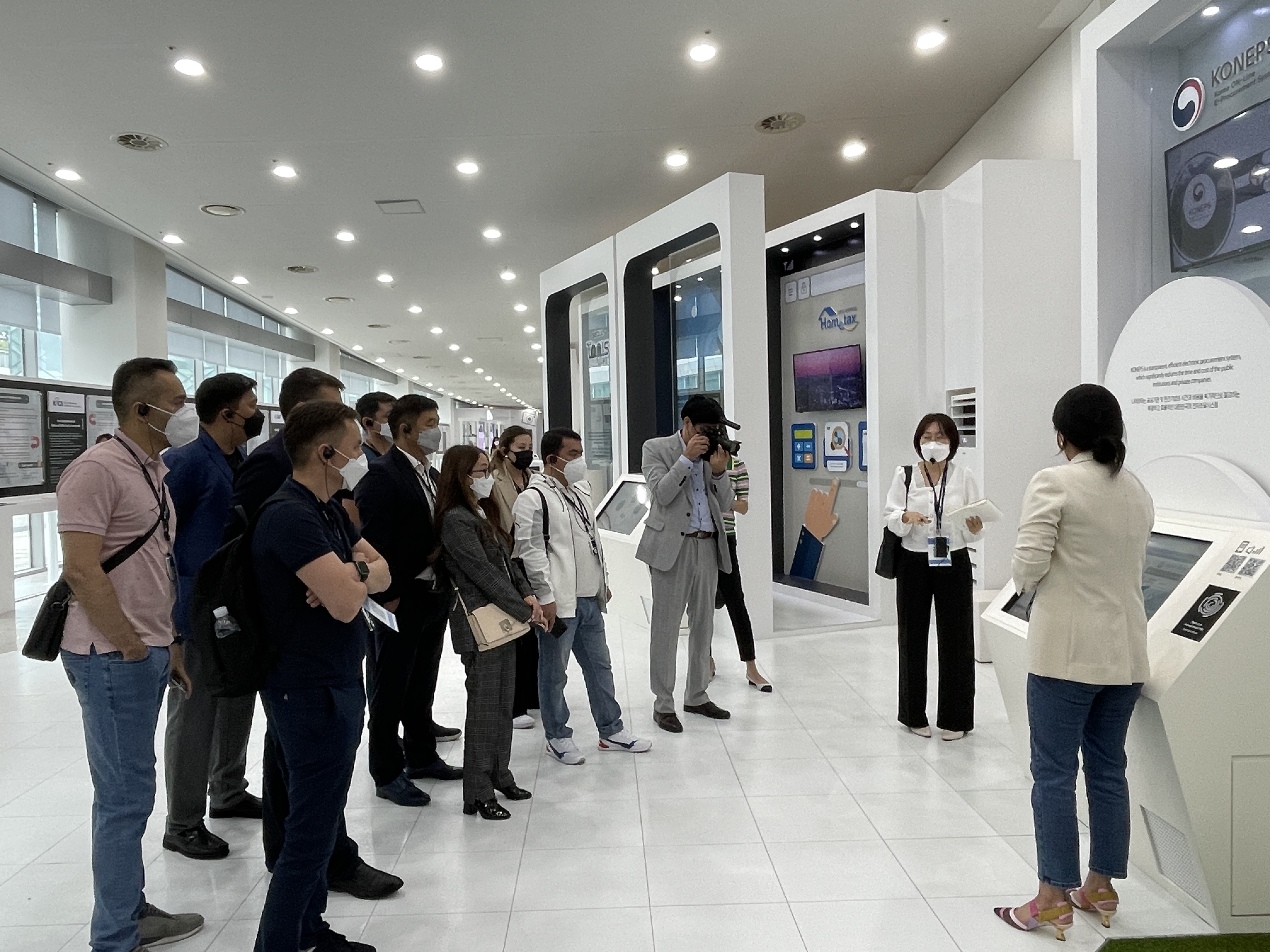Government Representatives of Central Asia and the Caucasus countries have learned leading practices of the Republic of Korea in the field of Digitalization of Public Service Delivery
19-21 September – more than 20 government officials from 7 countries of Central Asia and the Caucasus visited the specialized state bodies of the Republic of Korea to explore best practices, policies and technologies in digitalization of public services.
The study visit was organized as part of a joint project of the Ministry of the Interior and Safety (MOIS) of the Republic of Korea, the National Information Society Agency (NIA) of the Republic of Korea, the United Nations Development Programme (UNDP), and the Astana Civil Service Hub (ACSH), funded by the Government of the Republic of Korea.
As part of the three-day visit, a seminar was held on the topic “Provision of public services using the latest digital technologies”. Civil servants and practitioners also visited the government agencies of the Republic of Korea, where successful cases of innovations in the field of public administration and public services were presented, including the policy and practice of the e-cloud, cybersecurity, artificial intelligence, digital identity systems, and blockchain-based public services.
Opening the study visit, President of the NIA Mr. Jongsung Hwang noted that with the appearance of the COVID-19 pandemic, governments around the world have realised the importance of establishing and promoting digital government, as well as providing online public services to the citizens using new technologies such as AI and Big Data. He noted that, as part of a joint project, since 2021, the MOIS, NIA, UNDP and the ACSH have been actively making efforts to enhance the capacity of civil servants in the field of innovation and digitalization of public administration and public services in seven countries.
In his welcoming remarks, the Chairman of the ACSH Steering Committee Mr. Alikhan Baimenov emphasized the value of cooperation with the Government of the Republic of Korea and the countries of Central Asia and the Caucasus. “Across the world, digital tools and GovTech are clearly one of the main tools in response to the challenges that public administration faces in the new reality. Along with the use of modern technologies, it is important to overcome interdepartmental disunity, taking into account the interests of the whole country. It is very significant that the Republic of Korea, being one of the world leaders in the field, is ready to share its experience using the Hub’s platform,” said Mr. Baimenov.
MOIS Director of the Digital Government Cooperation Division Mr. Sungjoo Son emphasized the readiness of the MOIS to share its experience and knowledge, given the interest of the countries in the region: “We see that all countries participating in the program are firmly committed to digital innovation in the public sector ".

The MOIS and NIA have arranged study visits to the Digital Government Exhibition Hall (Sejong), the Minting, Security Printing & ID Card Operating Corporation, and the National Information Resource Service (Daejeon). Participants also visited the Anyang Smart City Center, where they explored integrated data processing for public order and security of the city's citizens, and visited Samsung SDS, where they explored innovative digital transformation solutions, including analytics, artificial intelligence platforms, and blockchain technologies.
Photos of the event are availale here.
_________________
For reference: The aim of the joint regional development project of the Ministry of Internal Affairs and Security of the Republic of Korea, the National Agency for the Information Society of the Republic of Korea, the United Nations Development Programme and the Astana Civil Service Hub is to increase the capacity of civil servants and practitioners involved in introducing innovations in the public administration system and digitalization of the public services provision in seven countries of Central Asia (Kazakhstan, Kyrgyzstan, Tajikistan and Uzbekistan) and the Caucasus (Azerbaijan, Armenia, Georgia). The project is designed for three years (2021-2023) and includes research, seminars, conferences, as well as study visits.



